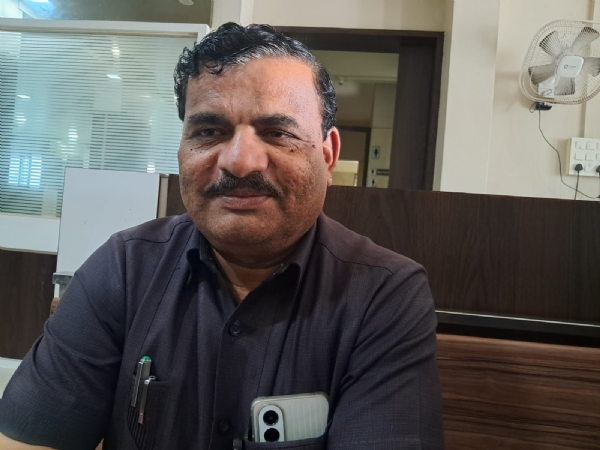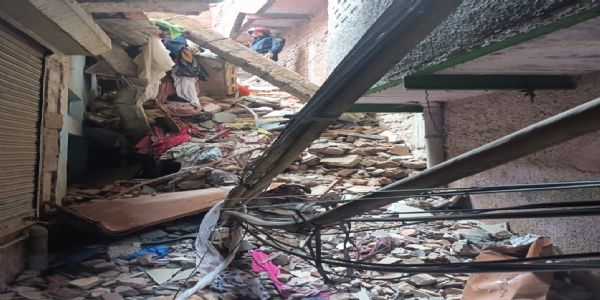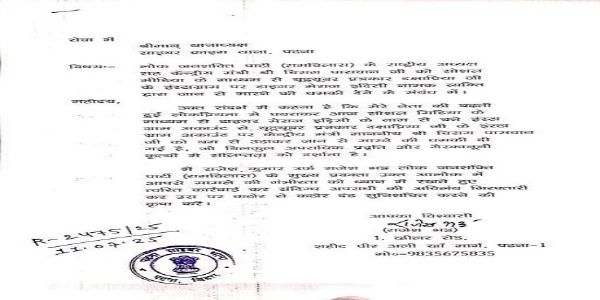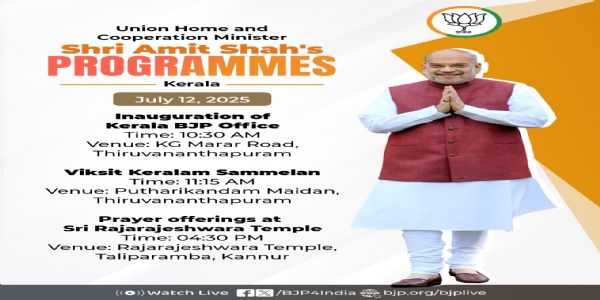
Bengaluru, 11 July(HS): The glory of India being self-sufficient in foodgrain production and the present hyped claim of the country being a food bowl to the whole world soon looks to be a mirage, if the present trend of growers drifting towards commercial crops continues at the same pace. Dr K M Avaradi, Principal of the KLE Society's Shri Channagirishwar Prasadik Arts, Science and D D Shirol Commerce College, Mahalingpur in Bagalkote district, fears that the day of India being forced to import foodgrains is not far off. He is a postgraduate in Agricultural Sciences from the University of Agricultural Sciences(UAS), Dharwad, and Ph D in Economics from the Karnataka University, Dharwad. Dr K M Avaradi is quite vocal and forthright in his assertions on the present peasants' predicament. In an informal interaction, Dr K M Avaradi didn't mince words to dwell upon the present crisis entangling the farming community. Excerpts from the same:
Q: How do you view the overall economic situation of the land tillers in the country?
Dr K M Avaradi: The economic condition of the country's farmers is very critical. In other words, there is neither stability nor any guarantee. Expenditure is fixed in a way for ploughing, readying the fields, sowing seeds, deweeding, fertilisers, chemicals, cultivation, and harvesting, etc are all fixed. But, at the same time and paradoxically or sadly, the income is not all fixed, and the hopeless thing is that there is a lot of variation because of the market prices.
Q: What are the reasons for the farmers' income always being southwards?
Dr K M Avaradi: There is a saying that monsoon is like gambling in India. For instance, if we get a good monsoon, we will get a bumper crop, but the market will give us a low price for our produce. And whenever rainfall is scarce, production will be low, and as a result, the prices will be high, but the income will be low. In other words, in both conditions of good and bad monsoon, the income would be low and unstable.
Q: How do you foresee the prospects of people tending to Agriculture in the country?
Dr K M Avaradi: Thanks to the uncertain situation of expenditure and income, nobody wants to venture into Agriculture. Way back in the good old days, people used to say that a job is inferior to human beings, and this trend has done a complete U-turn these days. Everyone is behind the job, and even well-to-do farmers are not getting brides!
Q: Do you like to blame the governmental polices for such a plight?
Dr K M Avaradi: Some policies are there, but they are not being implemented in the right way. There is something called a Minimum Support Price(MSP) for some varieties of foodgrains like Paddy and Wheat, and growers of mostly Punjab and some other North Indian states are beneficiaries of this particular scheme. But not all other crops benefit from the MSP, although for namesake, you can find innumerable crops on the MSP list.
Q: In what ways, this adverse situation affecting Agriculture?
Dr K M Avaradi: Thanks to the unstable income situation for cultivation, these days, there are no takers for peasantry, and more hopelessly, parents are advising their children against going into agriculture. But for Punjab and adjoining states, where Paddy and Wheat are grown, elsewhere it is only commercial crops! For example, in our area, wherever you go, you will only find Sugarcane all along, and every year, the area of Sugarcane cultivation is increasing.
Q: What are the reasons for such a tendency?
Dr K M Avaradi: In comparison to the other crops, Sugarcane ensures an assured income, which is a vital factor for farmers switching over to the money-generating commercial crop. This changeover of crop pattern doesn't guarantee you a smooth ride, as there are also enough woes like delayed payment problems. Despite that, Sugarcane is somewhat remunerative when you compare the same with foodgrains, and that is the sole reason why farmers are behind the commercial crops.
Q: Are the farmers, at least, growing foodgrains for their domestic requirements?
Dr K M Avaradi: That is the peculiar situation prevailing now, as farmers are not even interested in growing foodgrains for themselves, forget growing them for the purpose of sale. On the other hand, they are coming to the market in order to buy foodgrains! If the same condition continues, then our country again will have to start importing foodgrains from other countries!
Q: Do you foresee such a situation sooner or later?
Dr K M Avaradi: This situation is bound to arise shortly. When we were kids, foodgrains like wheat were very costly, but not now, as the prices of wheat are very less while Jowar has become very costly. The reason is, Jowar is grown in rain-fed areas, and thanks to unpredictable monsoon conditions, there is no guarantee of one being sure of sowing Jowar under the stipulated monsoon conditions. The yield of Jowar is also very less.
Q: Are there no efforts to set things right in this situation?
Dr K M Avaradi: Our Agricultural scientists and universities need to do something to increase the yield of Jowar.
Q: If Jowar prices are soaring, why aren't farmers cultivating Jowar?
Dr K M Avaradi: It is mainly due to the unpredictable rain situation along with the labour problem. These days, labourers and smallholding farmers are not remaining in their regions during the monsoon season. They are compelled to migrate to towns and cities for a livelihood in the absence of the same in their native places due to no jobs and income, and due to unpredictable monsoons. As a result of this practice of migration, you don't get the required number of labourers in the rural areas for the cultivation of foodgrains, including Jowar. In a way, the labour problem is more in the rainfed regions in comparison to the irrigated areas. The yield of Sorghum is also very less, like three to four quintals per acre.
Q: With so many odds all around, like the trend of farmers' children not taking up agriculture, farmers not getting brides, and no remunerative prices for the crops, where do you think this situation will ultimately lead to?
Dr K M Avaradi: The immediate fallout would be a shortage of foodgrains, while continuous usage of chemicals, fertilisers and pesticides is leading to decreased yield year on year, which is an indication of a dip in the fertility levels.
Q: According to you, what is the solution for all such problems?
Dr K M Avaradi: No doubt, there is a problem, provided the farmers educate themselves. However, the harsh reality is that there is no unity amongst the farming community because diversity of crops, the diversity of castes, the diversity of languages, and regionality. They are not united, while divide and rule is going on, quality education is lacking among the farmers, still crimes are continuing.
Q: Ultimately, where do all these paradoxes end?
Dr K M Avaradi: Again, we will have to beg foodgrains from other countries, and that condition may arise eventually and very soon. Everybody wants to do a government job only, gain there is a problem.
Q: In that case, what will happen to the farmers' families?
Dr K M Avaradi: I do not know what the farmers are thinking. Some fathers are doing agriculture, and likewise, some mothers and brothers are also into it. However, they don't want their children to go into agriculture. Their viewpoint is that we are already suffering due to agriculture, so better to stay away from the same. That is the prevailing situation now.
Hindusthan Samachar / Manohar Yadavatti








